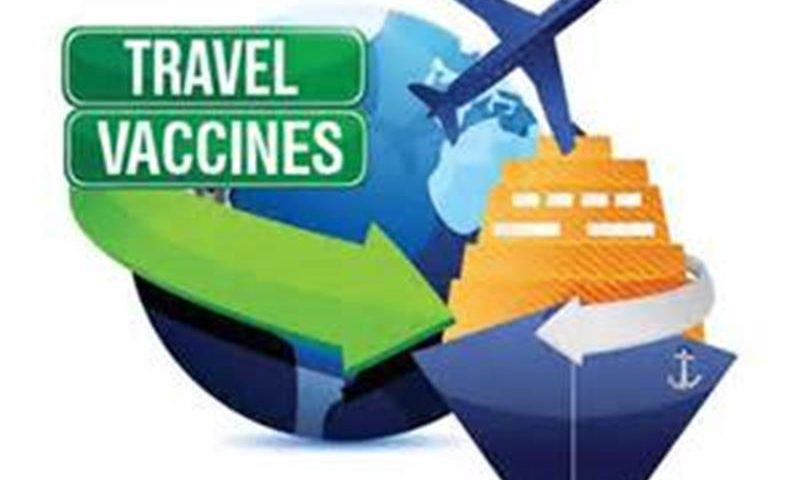Traveling South Africa – Helpful Vaccination Information – Linksfontein Safari Lodge
The real voyage of discovery consists not in seeking new landscapes, but in having new eyes – Marcel Preast
Traveling South Africa – Helpful Vaccination Information – Linksfontein Safari Lodge
If you’re travelling with children, make sure that they are up to schedule with their routine vaccines. Check with your doctor to see whether you’re due for a booster.
Recommended Vaccines
There are some vaccines that aren’t standard in the United States or Europe, but which are definitely a good idea for those traveling to Africa. These include vaccinations against Hepatitis A and Typhoid, both of which can be contracted through contaminated food and water. Hepatitis B is transmitted via bodily fluids, and there is a risk of contamination through unscreened blood (if you end up having to go to hospital) or through sexual contact with a new partner.
There are some vaccines that aren’t standard in the United States or Europe, but which are definitely a good idea for those traveling to Africa. These include vaccinations against Hepatitis A and Typhoid, both of which can be contracted through contaminated food and water. Hepatitis B is transmitted via bodily fluids, and there is a risk of contamination through unscreened blood (if you end up having to go to hospital) or through sexual contact with a new partner.
Compulsory Vaccines
Whilst highly recommended, all of the vaccines listed above are optional. There are some that aren’t, however, and of these, Yellow Fever is by far the most common. For many African countries, proof of Yellow Fever vaccination is a legal requirement, and you will be refused entry if you don’t have proof with you. You’ll need to check with the embassy of your chosen destination to find out whether this condition applies to you. Generally speaking, Yellow Fever vaccination is a requirement for all countries in which the disease is endemic.
Whilst highly recommended, all of the vaccines listed above are optional. There are some that aren’t, however, and of these, Yellow Fever is by far the most common. For many African countries, proof of Yellow Fever vaccination is a legal requirement, and you will be refused entry if you don’t have proof with you. You’ll need to check with the embassy of your chosen destination to find out whether this condition applies to you. Generally speaking, Yellow Fever vaccination is a requirement for all countries in which the disease is endemic.
Often, non-endemic countries will ask for proof of vaccination if you are travelling from or have recently spent time in a Yellow Fever country. For a list of all Yellow Fever countries, see this map by the Centres for Disease Control and Prevention (CDC).
Country-Specific Diseases
Depending on the country and region that you’re planning on visiting, there may be several other endemic diseases that you’ll need to vaccinate against. Some sub-Saharan countries (including Kenya, Uganda, Ethiopia and Senegal) are part of Africa’s ‘Meningitis Belt’, and vaccines for Meningococcal Meningitis are strongly recommended. Malaria is a problem for many sub-Saharan countries, and although there is no malaria vaccine, you can take prophylactics that reduce the likelihood of infection dramatically.
Depending on the country and region that you’re planning on visiting, there may be several other endemic diseases that you’ll need to vaccinate against. Some sub-Saharan countries (including Kenya, Uganda, Ethiopia and Senegal) are part of Africa’s ‘Meningitis Belt’, and vaccines for Meningococcal Meningitis are strongly recommended. Malaria is a problem for many sub-Saharan countries, and although there is no malaria vaccine, you can take prophylactics that reduce the likelihood of infection dramatically.
There other diseases that you can’t vaccinate against, including Zika Virus, West Nile Virus and Dengue Fever. Mosquitoes spread all of these, and the only way to avoid infection is to avoid getting a nasty bite. Although vaccines for Zika Virus are currently in clinical trials. In the meantime, pregnant women and women who are planning on becoming pregnant should discuss the risks of Zika Virus carefully with their doctor before booking a trip to a Zika endemic country.
Visit the CDC website for detailed information on which diseases are prevalent in each African country.
Visit the CDC website for detailed information on which diseases are prevalent in each African country.
Planning Your Vaccination Schedule
The administration of some vaccinations (like the one for Rabies) happens in stages over several weeks. Certain malaria prophylactics you need to take for two weeks before departure. If your local doctor or travel clinic doesn’t have the right vaccines in stock, they will have to order them especially for you. This can take time. It’s a good idea to book an initial consultation with your doctor. Several months before your African adventure.
The administration of some vaccinations (like the one for Rabies) happens in stages over several weeks. Certain malaria prophylactics you need to take for two weeks before departure. If your local doctor or travel clinic doesn’t have the right vaccines in stock, they will have to order them especially for you. This can take time. It’s a good idea to book an initial consultation with your doctor. Several months before your African adventure.
Another consideration is the rabies vaccination. A safari by definition involves spending a lot of time in contact with wildlife. Your chance of being bitten by a wild animal is very low. The rabies shots are painful and expensive but on the other hand, rabies itself can be fatal if left untreated. So this vaccination is a judgment call.
The recommendations for travellers change all the time depending on what diseases are currently spreading, so talk to your doctor. The CDC keeps an up-to-date list by country of which vaccines and medications they recommend for travel.

